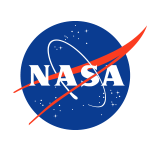Advanced Information Systems Technology
A Service to Match Satellite and In-situ Marine Observations to Support Platform Intercomparisons, Cross-calibration, Validation, and Quality Control
Project Description
We propose developing a Distributed Oceanographic Match-up Service (DOMS) for the reconciliation of satellite and in situ datasets in support of NASA's Earth Science mission. The service will provide a mechanism for users to input a series of geospatial references for satellite observations (e.g., footprint location, date, and time) and receive the in-situ observations that are 'matched' to the satellite data within a selectable temporal and spatial domain. The inverse of inputting in-situ geospatial data (e.g., positions of moorings, floats, or ships) and returning corresponding satellite observations will also be supported. The DOMS prototype will include several characteristic in-situ and satellite observation datasets. For the in-situ data, the focus will be surface marine observations from the International Comprehensive Ocean-Atmosphere Data Set (ICOADS), the Shipboard Automated Meteorological and Oceanographic System Initiative (SAMOS), and the Salinity Processes in the Upper Ocean Regional Study (SPURS). Satellite products will include JPLv3 QuikSCAT winds, the Aquarius v3.0 L2 orbital/swath dataset, and the high-resolution gridded L4 MUR-SST product. Importantly, although DOMS will be established with these selected datasets, it will be readily extendable to other in situ and satellite collections, which could support additional science disciplines. DOMS is needed by the marine and satellite research communities to support a range of activities. Use cases include, but are not limited to: (1) Iterative calibration/validation of Aquarius sea surface salinity (SSS) retrieval algorithms. In this case, the user must identifying co-located salinity observations from the satellite to surface salinity from ships or floats. (2) Validation of wind directions measured in-situ on ships to ensure they are representative of the large-scale wind flow derived from a scatterometer. For each ship wind measurement, the user must determine whether or not a satellite wind observation can be matched to the ship data (close enough in space and time). Traditionally, researchers match observations by downloading large volumes of satellite and in situ data to local computers and using independently developed one-off software. Frequent repetition of this process consumes substantial human and machine resources. The proposed service will provide a community accessible tool that dynamically provides data matchups and allows the scientist to only work with the subset of data where the matches exist. Technical challenges to be addressed include (1) ensuring that the match-up algorithms perform with sufficient speed to return desired information to the user, (2) performing data matches using datasets that are distributed on the network, and (3) returning actual observations for the matches [e.g., salinity] with sufficient metadata so the value difference can be properly interpreted. We will leverage existing technologies (i.e., the Extensible Data Gateway Environment, Webficiation, OPeNDAP, SQL and graph/triple-store databases) and cloud computing to develop DOMS. DOMS will be equipped with a web portal interface for web users to browse and to submit match-up requests interactively. DOMS will also provide an underlying web service interface for machine-to-machine match-up operations to enable external applications and services. The proposal team includes experts from Florida State University's Center for Ocean-Atmospheric Prediction Studies (COAPS), NASA's Jet Propulsion Laboratory (JPL), and the National Center for Atmospheric Research (NCAR). DOMS will be hosted at JPL close to the satellite oceanographic data archive (containing the largest volumes of data used by DOMS) and the SPURS in situ data. Other distributed DOMS nodes hosting the project software stack and serving the ICOADS and SAMOS data will be at partnering institutions NCAR and COAPS, respectively.
More »
Anticipated Benefits
Increase scientific understanding of natural phenomena using remote sensing
More »
Primary U.S. Work Locations and Key Partners
| Organizations Performing Work | Role | Type | Location |
|---|---|---|---|
| Florida State University (FSU) | Lead Organization | Academia | Tallahassee, Florida |
| University of Kentucky Research Foundation | Supporting Organization | Academia | Lexington, Kentucky |
Primary U.S. Work Locations
-
California
-
Colorado
-
Florida
-
North Carolina

Suggest an Edit
Recommend changes and additions to this project record.

